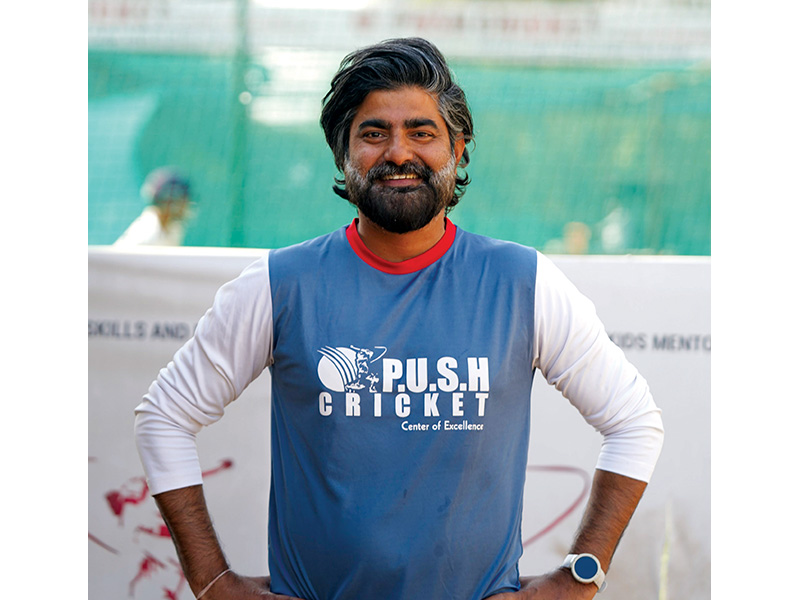At a time when NEP 2020 is being rolled out, it would be a good idea to mandate a dedicated sports class starting an hour before academic classes commence, or after school gets over
(Puru Singh is founder-director of the Push Sports Academy, Delhi)
This life skill could have been learned only on a basketball court in a sea of racism that Johnson experienced as a student, and not from any other place. This is as true of basketball as it is for any other sport, as lessons learnt on playing fields are indelible. This is why sports education needs to be an integral part of school curriculums — rather than limited to one or two 45-minute classes per week — when young children can start learning life skills. Therefore, at a time when the National Education Policy (NEP) 2020 is being rolled out, it would be a good idea to mandate a dedicated daily sports class, which could either start an hour before the academic classes commence, or after school gets over.
Moreover, sports classes in schools are usually under the charge of a physical education teacher who’s more academic than an individual with experience in a sports arena. To derive full value from sports education only individuals who have experience of competitive play if not internationally, at least in national games, should be selected to teach sports and games. Indeed it’s advisable that schools invest in specialist coaches for specific sports. Just as an English teacher can’t teach algebra or trigonometry, a swimming coach can’t effectively coach a football team.
This is to not discount the importance of academics. In the US to qualify for inclusion in a school or college athletics or sports team, students have to score a minimum grade point average (GPA) in academics. And to maintain minimum scores to retain their places in an athletics squad or field games team. Therefore, coaches work in tandem with fellow teachers in academic disciplines to ensure that star athletes understand that sports and academics are not mutually exclusive.
A similar model needs to be adopted in India to ensure students playing for school or varsity teams maintain minimal academic grades. Sports stars should be made aware of minimum grades required if they wish to continue playing on school or college teams.
After winning India’s first ever gold medal for pistol shooting at the Beijing Olympics 2008, Abhinav Bindra stressed that if teaching life-skills to sportspersons was mandatory as in the US, “none out of 10 athletes will actually fail.” Learning a life skill can be the difference between earning a decent living and living in penury — examples of which abound in India.
The most obvious beneficial spillover from any sport — and one says this consciously, any sport — is to learn to become a team player while simultaneously excelling individually. The popular belief that only field games such as hockey, football and cricket teach team spirit is erroneous. Sports such as tennis or golf where there’s a whole support team, including coach, agent and physiotherapist, enables players such as Rafael Nadal and Novak Djokovic to win Grand Slam tournaments.
Conversely, even in team sports, there’s room for individual excellence. But individual glory is little solace for great performers if they are on the losing side. Michael Jordan, the greatest hoopster the world has ever seen whose popularity transcended geographical boundaries, was already a star in the 1980s with numerous accolades, but bereft of championship win. That came about only when he teamed up with other greats like Scottie Pippen Sr, Horace Grant and Phil Jackson which led to the Chicago Bulls winning several championship trophies in the 1990-91 season.
\Jordan aptly remarked that “If you think and achieve as a team, individual accolades will take care of themselves. Talent wins games, but teamwork and intelligence win championships.” This also explains why in two back-to-back Olympics of 1992 and 1996, the US dominated basketball despite the absence of stalwarts like Johnson, Jordan and Pippen. But the team included Larry Bird (1992), Shaquille O’Neal and Karl Malone (1996). They played as a team for the country.
Sports also teaches humility, grace and acceptance because no sportsperson can end his/her career with an all-wins record. Even Balbir Singh Dosanjh, the greatest field hockey centre-forward the game has ever produced, ended up without the gold medal at the 1958 Tokyo Asian Games.
In 2006, when South Africa beat Australia with one ball to spare in their fifth cricket ODI, Ricky Ponting and Herschelle Gibbs were declared joint recipients of the Man of the Match award for chalking up brilliant centuries. However, Ponting, an aggressive on-field player, graciously declined the award and stepped aside in favour of Gibbs.
These are the important life skills that sports teach.
